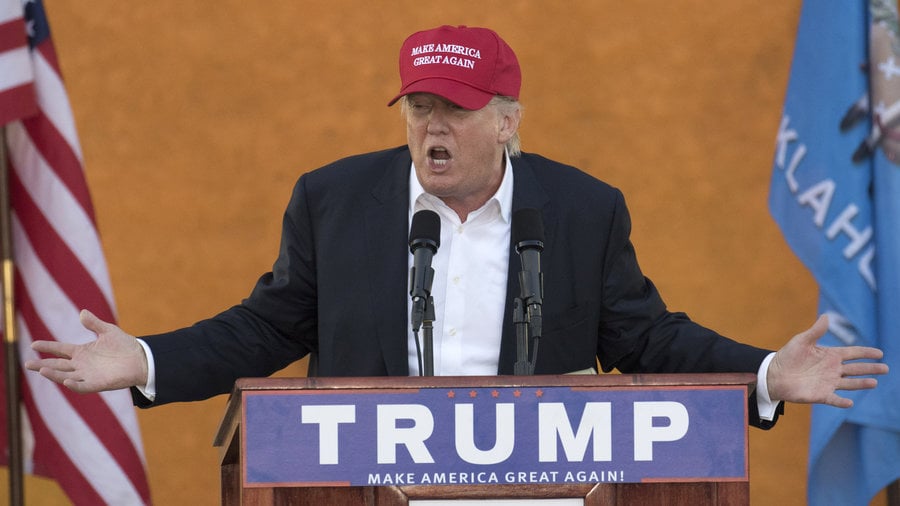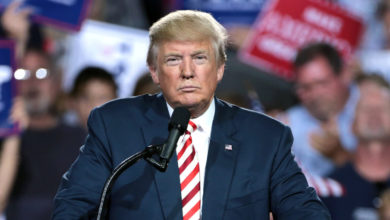Following the Super Tuesday primaries, the big news media went through its greatest lengths yet to coronate Hillary Clinton as the Democratic Nominee. Although she left the polls with the same number of delegates as Sanders, the media has essentially written off the Sanders campaign as a footnote in history, featuring headlines like “Sanders Is Not on Track to Catch Up to Clinton” (New York Times) and “Clinton, Trump victories foreshadow nasty, contentious fall campaign” (Washington Post), “Clinton Triumphs in Delegate.
While most coverage simply ignored Sanders in the race as an also-ran entity, the New York Times’ coverage goes more directly to the heart of the big media’s messaging. According to the big media, the general public should consider Sanders dead in the water, that there is no hope for a “political revolution” in the United States.
Some of the more policy-wonk oriented commentary goes into greater detail, but contains the same thinly-veiled threats about Clinton being the Democrats’ best hope. Dana Milbank’s op-ed in the Washington Post essentially summarizes the position by breaking it down into the following:
- The Obama campaigns ruined the Democratic Party by building up and mobilizing an independent base
- Sanders is relying on a similar strategy, especially by calling for a “political revolution” and by positioning himself as standing apart from establishment politics;
- Clinton represents the best hope to revive the Democratic Party, by essentially banking her whole strategy on her being a political insider by appealing to experience and by relying heavily on Democratic Party resources like big-name donors and super-delegates.
But it is simply false that Clinton is our best hope for resisting the far-right tide embodied by Donald Trump and Ted Cruz.
The Democratic Party: Servants of the 1%
A central theme of the recent blackmail campaign against the left is that the Democratic Party alone holds the possibilities for making political and economic progress. By arguing that Clinton’s greatest merit is her ability to beat Donald Trump and rebuild the Democratic Party represents a *victory* unto itself. In other words, pundits and big media have attempted to make the Democratic Party synonymous with progressivism.
Neither Hillary Clinton nor the Democrats have a monopoly on progressive politics. As Bill Clinton ushered in the era of mass incarceration by pushing for mandatory minimum sentencing, slashing social welfare programs and initiating his own round of frivolous and destructive foreign military campaigns, Hillary Clinton broke the mold by becoming one of the first politically significant First Ladies, first by campaigning for Bill and later by lobbying and pushing legislation for him once President. In other words, she was a very active part of the Democrats’ decisive swing to the right in the 1990s.
Since then, the Democrats have linked arms with “welfare reform” (i.e. reducing social spending and adding reactionary conditions to welfare like proving they are searching for work), myriad imperialist wars like Bill Clinton’s bombing campaign in Yugoslavia, high profile Democrats’ nearly-unanimous support for initiating the wars in Iraq and Afghanistan, mandatory minimum sentencing and other aspects of the prison-industrial complex, and much, much more. The Democratic Party, in other words, has not actually been a serious force for progressive policies in the past 20 years. This is why Sanders’ NewDeal/Great Society message of more progressive taxation, increased social spending, infrastructure overhauls, etc. sound radical today.
More recently, the Obama administration was aware of and facilitated the crackdowns on the Occupy movement, NSA mass surveillance and CIA “black sites.” It has not seriously combatted viciously racist police violence. It spearheaded the senseless bombing campaign in Libya (with Hillary Clinton at the helm), leaving the country in ruins. One of its first actions was to bail out the criminal bankers and CEOs who tanked the economy in 2008.
Both Clinton and the Democrats, in other words, are not vehicles for progressive change. Her new self-styled moderate-progressive image is a transparent act of deception, and few should be fooled by her advocacy for tinkering at the edges of policy to “lay the foundation” for more sweeping changes. Both entities literally represent “business as usual.”
Sanders and the radical left
Bernie Sanders’ campaign opens a major new chapter in U.S. history: for the first time since the end of the Cold War, a self-described socialist is achieving major mainstream success. The impact for revolutionaries, progressives and socialists cannot be under-stated: massive numbers of the Democratic base are essentially revolting against the weak, moderate and vacillating policies of the Democratic Party establishment, and in particular against the Democratic National Committee (DNC).
This is the main fear animating the Democratic Party elites, as expressed in Milbanks’ Washington Post op-ed. Only now is the Democratic Party establishment expressing remorse over the Obama campaigns’ emphasis on energizing and turning out young, progressive voters; before, it was a clever new strategy. Since it opened the possibility of a left-leaning candidate becoming the flag-bearer for the Democratic Party, however, it suddenly became a mistake. Put plainly, the Democratic Party fears fulfilling the meaning of its namesake: it is not interested in mobilizing progressive and critical young people; it fears them. It is not encouraging mass participation in the political process; its insiders’ candidate of choice has a strategy based on low voter turnout. It has certainly not embraced the mass movements of the oppressed.
The past 30 and especially the past eight years have been brutal for working class people, between staggering unemployment rates (as high as 11 percent, if counting those no longer looking for work), booming foreclosure rates, stagnant incomes and the scarcity of full-time and permanent work.
Given this political climate, the best thing Sanders could do to build the working class movement would be to stop promising to fold his tent and support Clinton if he loses the nomination. An independent run could catalyze a mass working class electoral party. This would cripple the Democrats and likely force a major conflict between the two wings of the existing Democratic Party, but that conflict has already begun with many high profile Democrats either refusing to support Clinton, or, in Tulsi Gabbard’s case, outright supporting Sanders. More importantly, however, it raises the possibility of breaking out of the two-party lesser-evil paradigm which promotes cynicism and defeatism.
If Sanders ultimately refuses to consider an independent run, his supporters are left with a critical question: What is to be done if Clinton wins the nomination? Should they too follow their candidate into supporting a fear-mongering war criminal and Walmart executive? Or should they continue the fight for socialism? Put another way, Sanders’ supporters must ask themselves if they are supporting his candidacy because of the campaign’s content—a message of hope that a political movement can fight for major reforms and ultimately a “political revolution”—or are they supporting Bernie Sanders simply because it is Bernie Sanders? Most will say it is because they reject that “business as usual” must be business as always. They will say they that it is because they believe a “political revolution” is possible and positive.
The Party for Socialism and Liberation extends a welcome to those willing to keep fighting for socialism, regardless if its most prominent exponent today retreats tomorrow, refusing to challenge the Democratic Party’s repeated efforts at sabotaging his own campaign. We are running Gloria La Riva for President and Eugene Puryear for Vice President because we think it is possible and absolutely necessary to reject lesser-evil blackmail and want to offer an explicitly working class organization as the only sustainable way of pressing fighting for justice and liberation for the exploited and oppressed.






